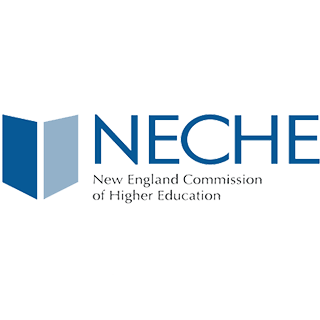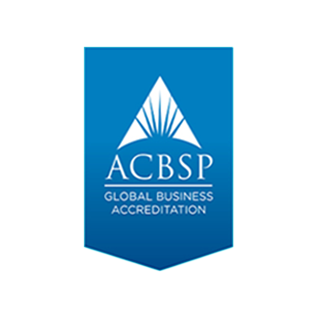For Jazzmen Shipp, Earning a Degree Changed Everything
Business | 2min Read

Develop the skills necessary to link operations and projects with relevant activities in almost all areas of business with the Master of Science in Project Management and Operations from Southern New Hampshire University (SNHU). Areas of study include supply chain management, international supply chain management, project management for Project Management Professional (PMP)® certification, management of service operations and Six Sigma-quality management.

Learn how to analyze, design, implement and manage projects for efficient operations in the online master's in project management degree program at SNHU. In foundational, major and elective courses, you'll study leading-edge topics while developing skills in operations management, project management, supply chain management, logistics, quality control and management science.
The 36-credit MS in Project Management online degree program explores the contemporary issues that make almost any business run smoothly. Through assignments, discussions and projects, you'll learn concepts, language, insights, tools and leadership skills needed for success in operations and project management.
At Southern New Hampshire University, the online master's in project management can be completed in as few as 15 months and provides a market-relevant combination of comprehensive business education and real-world applications. The program's technology-integrated coursework is continually adjusted to reflect the latest topics, technology and tactics in the field.
As an MS in Project Management and Operations student, you’ll take 6 required courses, plus an additional 4 elective courses in your area of interest. You'll also choose 2 graduate-level business courses to customize your degree, aligning it to your interests and goals. Of your 36 credits, 24 credit hours must be QSO (Quantitative Studies & Operations Management) courses.
Note: Students who successfully complete QSO 645: Project Management for PMP® Certification as part of their MS in Project Management can obtain the 35 hours of project management education required in order to take the PMP® certification exam.
Minimum Specifications:
Additional Information:
You've earned it – now take advantage of it. Students who have earned the following certifications may be eligible to waive certain courses, helping you save time and tuition.
Through SNHU’s relationship with the Project Management Institute (PMI)®, coursework within this program is designed to give students the education, experience and guidance needed to prepare for the Project Management Professional (PMP)® certification exam.
As part of this program, students have the option to take QSO-645: Project Management for PMP® Certification. Upon successful completion, this course can satisfy the 25 hours of project management education required to apply for the PMP® certification exam. In addition, all QSO-645 instructors complete the PMI® Authorized Training Partner Train the Trainer – PMP® Exam Prep Program. This gives our faculty the authority to deliver PMP® exam prep and training content to PMI®’s quality standards.
Students who choose to pursue their PMP® certification will find that this in-demand, industry-recognized credential adds significant value to their skill set and job prospect potential, helping to boost their career growth and earning potential.
Our no-commitment application can help you decide if SNHU is the right college for you and your career goals. Apply up until 2 days before the term starts!
Upcoming term starts: July 6, 2026 | September 21, 2026
Attending college online at SNHU can be a life-changing experience. In fact, 93.4% of online students would recommend SNHU according to a 2025 survey with 8,718 respondents.
At SNHU, your classes will be led by instructors with impressive academic qualifications and many years of practical experience in the field of operations and project management.

Dr. Jimmie Flores worked for Shell Oil Company following his undergraduate degree and decided education would help open doors. After earning his MBA and a PhD, he also earned several more master's degrees and 2 doctorates. In addition to teaching he works as an IT consultant and writes extensively about finance, project management, nonprofit management, international business and more.
Position
Adjunct Faculty
Joined SNHU
2018
Education
"If you are a student who is focused on affordable and high-quality education, then SNHU is the right place for you. The updated curriculum adds value to the students and their educational journey."

Dr. Zuzana Buzzell began her SNHU career in 2005 as an adjunct faculty member before taking a full-time position in 2014. She has more than 15 years of experience developing and teaching programs in finance, business and economics, and has worked in hybrid, traditional and online academic programs, government agencies and in the private sector.
Dr. Buzzell’s research interests include digital ethics, finance technology, cryptocurrencies, and the future of finance and blockchains. She has published in several journals, conference papers and blogs on topics including mortgage-backed securities, finance technology, Brexit and more.
Position
Associate Dean, Business
Joined SNHU
2005
Education
You’ll take your courses within SNHU’s Brightspace platform. This is where you’ll find your:

At Southern New Hampshire University, you'll have access to a powerful network of more than 400,000 students, alumni and staff that can help support you long after graduation. Our instructors offer relevant, real-world expertise to help you understand and navigate the field. Plus, with our growing, nationwide alumni network, you'll have the potential to tap into a number of internship and career opportunities.
Recently, SNHU has been nationally recognized for leading the way toward more innovative, affordable and achievable education:
Founded in 1932, Southern New Hampshire University is a private, nonprofit institution with over 250,000 graduates across the country. SNHU is accredited by the regional accreditor New England Commission of Higher Education (NECHE), which advocates for institutional improvement and public assurance of quality.
No application fee. No test scores. And no college essay. Just a simple form with basic information. It’s another way SNHU helps you reach your goals sooner.
It's easy, fast and free.
Whether you're applying for an undergraduate or graduate degree, you’ll fill out a form to verify your previous education experience. As part of our admissions process, we'll help you request transcripts from your previous school(s) to see if you can transfer any credits into your SNHU program! (Also for free!)
After reviewing your official evaluation, you can decide if SNHU is right for you! If you choose to enroll, just pick your start date and get ready for classes to begin.
Talk to an admission counselor: 888.327.SNHU | enroll@snhu.edu
SNHU is accredited by the regional accreditor the New England Commission of Higher Education (NECHE). The university also carries specialized accreditations for some programs.
This program and its concentrations are accredited by the Accreditation Council for Business Schools and Programs (ACBSP). Student achievement data can be found on the ACBSP accreditation page.


As a nonprofit university, SNHU offers some of the lowest online tuition rates in the country. And when you work with our Financial Services team, we'll explore ways to help you save even more on your education – and customize a payment plan that works for you.
*before previously earned credits are applied
Tuition rates are subject to change and are reviewed annually.
**Note: Students receiving this rate are not eligible for additional discounts.
Additional costs: Course materials vary by course.
If 3 of your prior learning credits ($659/credit) are accepted toward your master’s degree.
Your remaining tuition cost: $21,747
If 6 of your prior learning credits ($659/credit) are accepted toward your master’s degree.
Your remaining tuition cost: $19,770
If 9 of your prior learning credits ($659/credit) are accepted toward your master’s degree.
Your remaining tuition cost: $17,793
If 12 of your prior learning credits ($659/credit) are accepted toward your master’s degree.
Your remaining tuition cost: $15,816
How we estimate your tuition cost:
We look at the cost per credit multiplied by the number of credits you need to earn for a master's degree. Most master's degrees require 36 credits. SNHU allows you to transfer in up to 12 credits, requiring a minimum of 24 credits to be taken at SNHU. This is only a tuition estimator and doesn't account for other fees that may be associated with your program of choice.
Transfer credits toward your master's degree program at SNHU. If you’ve taken one course or many, we’ll evaluate them for you.
Fill out the FAFSA to see if you’re eligible for grants or work-study. (You could also be offered loans, though you’ll have to pay those back later.)
Earn credits in leadership, technology and more – while taking advantage of an online graduate tuition discount for active-duty service members and spouses.
Getting free money for college – from SNHU or an outside organization – could help you save hundreds or even thousands of dollars.
Bring in credits from popular options like CLEP, Sophia Learning, Google and other common credit for prior learning (CPL) experiences.
Learn how you can save money with tuition reimbursement from your employer.
Take advantage of an online tuition discount through your organization’s partnership with SNHU. Check with your employer to see if your organization partners with us and if you’re eligible for additional tuition savings and partner education benefits.
One of the most exciting things about a career in operations management is that there's demand for it in just about every industry imaginable. Transportation, retail, military, e-commerce, healthcare, financial services, higher education, insurance, food service, manufacturing, hospitality – the list goes on.
Whether you're already in a project management role or you're looking to enter the field, an online MS in Project Management can help you hone the skills you need to prepare for what's next.
Upon completing SNHU's master's in project management, you may be prepared to take on a variety of project management roles, including:
Develop response systems to successfully mitigate damage in the face of crises, such as natural disasters or cyber threats.
Oversee all aspects of inventory control, from supplier relations and deployment to supply-and-demand forecasts and process improvement.
Develop operations strategies – such as budgeting, process improvement and risk mitigation – to overcome business challenges and achieve company goals.
Help improve your company's most crucial business practices, including cost, resource allocation and productivity.
Negotiate with vendors to purchase essential goods or services for your organization.
Promote the design and implementation of warehouse, distribution and logistics solutions.
Increase nationally in project management specialist positions through 2032, projected by the U.S. Bureau of Labor Statistics (BLS).1
Median annual pay nationally for project management specialists as of May 2023, according to the BLS.1 Statistic not based on wage data for SNHU graduates.
Understanding the numbers
When reviewing job growth and salary information, it’s important to remember that actual numbers can vary due to many different factors—like years of experience in the role, industry of employment, geographic location, worker skill and economic conditions. Cited projections are based on Bureau of Labor Statistics data, not on SNHU graduate outcomes, and do not guarantee actual salary or job growth.

Learning about operations has changed my outlook on what I am capable of achieving. The degree I have earned has given me a chance to apply for positions that I am now qualified for.
Jill McCamant '21
Depending on your goals, it absolutely can be. An advanced degree in project management can give you the boost of confidence you need to take your next step – and even help open doors to new career opportunities.
And regardless of your career aspirations, students in this degree program walk away with invaluable skills that can serve them across disciplines. A master's in project management helps hone your understanding of topics like quantitative analysis, management science, supply chain management, service operations and more.
In addition to professional advancement, there's research to suggest that graduate degrees could lead to higher earning potential throughout various fields and industries. In 2023, the U.S. Bureau of Labor Statistics reported that individuals with a master's degree earned a median weekly pay of $1,737.1 By comparison, those with a bachelor's earned $1,493.1
Read more about how to become a project manager.
The amount of time it takes to complete your master's in project management primarily depends on whether you're a full-time (2 courses per term) or part-time (1 course per term) student.
At SNHU, the online MS in Project Management degree is comprised of 36 credits — so if you enroll full-time, you could complete the program in as little as 15 months. If you're enrolled part-time or take a term off here and there, the program could take a bit longer.
And remember: there's no right or wrong way to tackle a graduate degree, so go at the pace that works best for you.
Earning your master's in project management at Southern New Hampshire University puts you in a great position to pursue and maintain your Project Management Professional (PMP)® certification. Because of SNHU’s relationship with the PMI®, the MS in Project Management & Operations coursework provides the knowledge, skills and resources to help you confidently prepare for the PMP® certification exam.
As part of this program, students even have the option of taking QSO-645: Project Management for PMP® Certification, which can satisfy the 25 hours of project management education required to apply for the PMP® certification exam.
If you choose to earn your master's in project management or a related field, there are a few additional steps needed, from there, to become a certified PMP®. To do so, you must:
It's important to note that some prerequisites are required before you can take the PMP® certification exam. According to the PMI®'s website, these prerequisites will vary depending on your highest level of education.
If, for example, you have a secondary degree – such as a high school diploma, associate degree or the global equivalent – you will also need:
On the other hand, if you earn a 4-year degree, you would then need:
A graduate degree is a valuable credential, and both an MBA and an MS can be great steps toward a career in project management. Let's compare the two to help you figure out which would be a better fit for you.
When deciding which is better for you, consider your experience and career goals. If you already have professional experience as a project manager, an MBA in Project Management could be a great addition to your resume — and even open opportunities outside project management in the future, should you be interested in them.
On the other hand, if you're brand new to the project management field — or hoping to break into it — an MS in project management could give you the specialized skills you need to get started and stand out in the job market.
Both graduate degrees are strong options for a career in project management (or beyond).
Most jobs in the project management, operations and business industries require a bachelor's degree. But a master's or PMP® could set you apart in these competitive fields and give you opportunities to advance your career even further.
If you've earned your bachelor's in project management or a related field, you may qualify for a number of entry-level jobs, including:
A master's degree, on the other hand, could open up opportunities to a number of leadership roles, including:
As the point person for corporate projects both big and small, you'll be responsible for coordinating schedules, evaluating cost estimates and budgets, assessing risk and more. With all these moving parts, your day-to-day will likely require any number of tools to help keep everything in order, including:
In addition to proficiency with some of or all these skills, as well as knowledge of common project management methodologies, you'll need a handful of key soft skills, including:
It's worth noting that many of these soft skills are essential to military service members and veterans, making this a particularly well-suited master's program for those looking to transition back into civilian life.
Southern New Hampshire University proudly supports military service members and their families with up to 30% tuition discounts, career and academic advisors with military experience, and transfer-friendly programs that award college credits for military training.
If you’re a military service member or the family member of someone who serves, and you’re interested in a bachelor’s-level program, consider our online operations management degree.
1 Bureau of Labor Statistics, U.S. Department of Labor, Occupational Outlook Handbook, on the internet at:
Cited projections may not reflect local or short-term economic or job conditions and do not guarantee actual job growth.
The Project Management Professional (PMP)® is a registered mark of the Project Management Institute, Inc.
The PMI® Authorized Training Partner seal is a mark of the Project Management Institute, Inc.